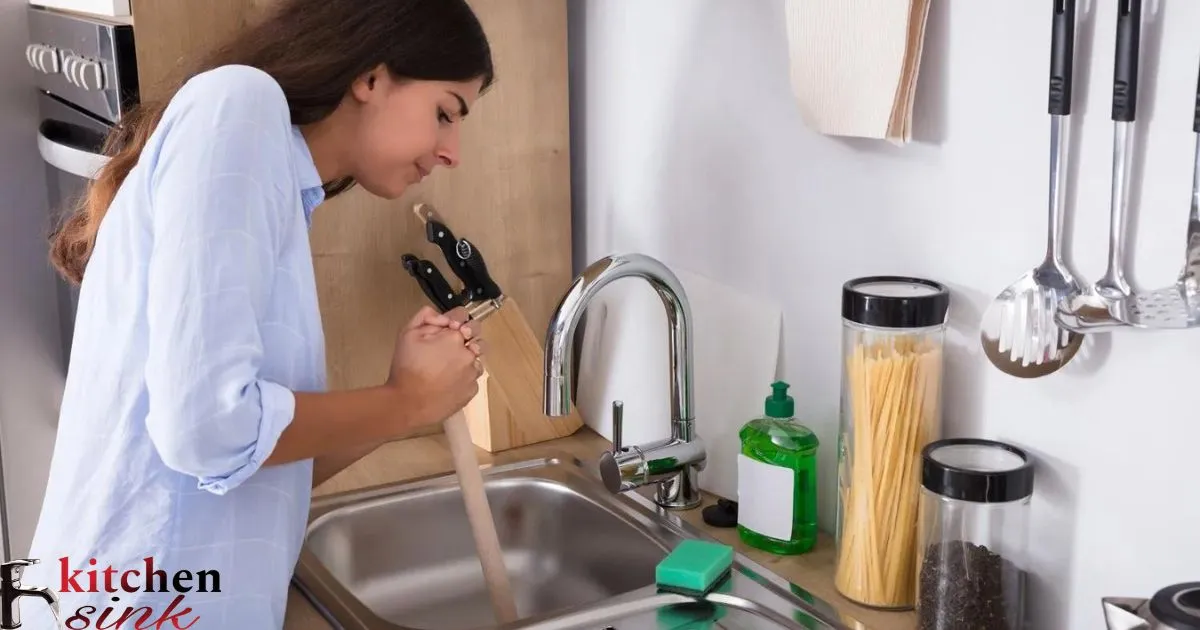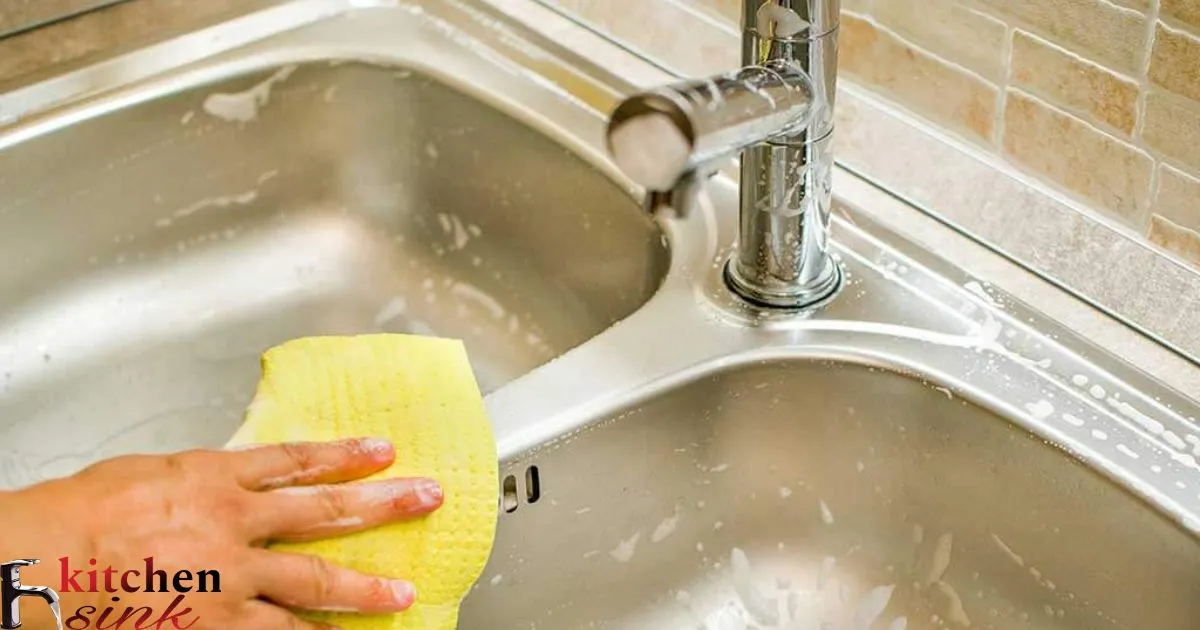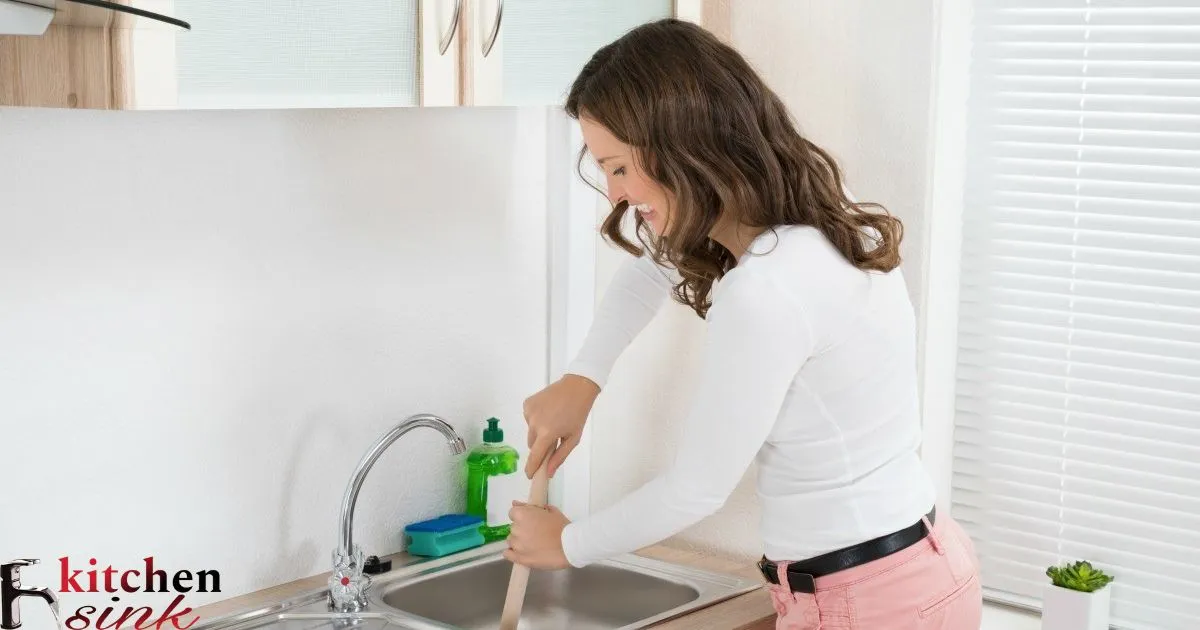Kitchen sink odor refers to unpleasant smells emanating from the drain or sink area in the kitchen. These odors can arise due to food particles, grease buildup, or stagnant water, leading to a foul smell that can permeate the kitchen area if not addressed promptly.
Tired of dealing with that unpleasant kitchen sink odor? Say goodbye to unwanted smells with these simple steps. Discover how to get rid of kitchen sink odor effortlessly by using common household ingredients like baking soda and vinegar. Take action now and enjoy a fresh-smelling kitchen every time you walk in!
To eliminate kitchen sink odor, start by pouring a cup of baking soda followed by a cup of vinegar down the drain. Let it sit for 30 minutes, then flush with hot water. Repeat weekly to maintain freshness.
Removing Kitchen Sink Odors Regularly
It is important to regularly clean your kitchen sink to remove odors. Odors in the sink can spread throughout the kitchen. Smelly sinks should be cleaned at least once a week.
Pay attention to any smells coming from the drain or bottom of the sink. Grease, food scraps, and stagnant water often cause odors. Remove these items before they have a chance to smell.
Causing That Smelly Kitchen Sink
5 short and easy causes of a smelly kitchen sink
Grease and food scraps
Over time leftover grease, food particles and debris left in the sink can rot and attract bacteria that causes odors.
Drain flies
These small flies are often attracted to smelly drains that contain leftover food scraps and bacteria. Their presence can make smells worse.
Mold and mildew
If the sink doesn’t fully dry after use, mold and mildew can grow in the warm, damp conditions. They produce musty odors.
Stagnant water
Leaving water standing or not draining properly allows it to stagnate quickly, breeding bacteria and resulting in smelly conditions.
Bacteria overgrowth
When grease, food or moisture are left behind, bacteria naturally grows and multiplies, breaking material down and releasing foul odors in the process. Regular cleaning prevents their overgrowth.
Grease And Food Scraps
Grease and food particles are major causes of sink smells. Over time, they rot and breed bacteria. Wipe the sink after each use to prevent build up.
Pay special attention to cleaning the overflow holes and corners where gunk hides. Remove any clogs in the garbage disposal or drain to eliminate odors at the source.
Drain Flies And Bacteria
Drain flies are often Drawn to kitchen sinks by bacteria. The flies themselves also produce foul odors. Pour boiling water down the drain weekly to kill bacteria and flush out any eggs or larvae.
Scrub the drain and surrounding area with an old toothbrush to remove residues that harbor bacteria. This removes their food source and makes the area inhospitable.
Mold And Mildew Growth
Mold and mildew love damp, Fix Low Water Pressure In Kitchen Sink warm sink environments. They produce musty smells that spread easily. Dry the sink completely after each use to discourage their growth.
For signs of existing mold or mildew, scrub with a mild bleach or hydrogen peroxide solution. Rinse well and allow the area to dry fully before future uses.
Stagnant Water
Leaving water standing in the sink can quickly result in smelly stagnation. Empty any sink contents promptly after use.
Allowing the sink to fully air dry after washing also removes conditions for bacterial overgrowth. Stagnant water removal is key for overall cleanliness.
How To Clean Your Kitchen Sink Effectively
Regular cleaning is important to keep kitchen sinks odor-free. Choose effective cleaning methods and natural deodorizing ingredients.
Inspect your sink closely to determine the cause of odors which will guide your cleaning approach. Focus on grease, food debris, and deep cleaning the drain.
Best Way To Clean My Stinky Kitchen Sink
There are several inexpensive, natural ways to deodorize kitchen sinks. Baking soda, vinegar, and hydrogen peroxide are effective without harsh chemicals.
Experiment with different cleaning methods to determine what works best for your situation. Regular cleaning prevents odors from occurring in the first place.
Scrub With Baking Soda Or Vinegar
Baking soda and vinegar counteract odors through chemical reactions. Make a paste with baking soda to scrub surfaces. For tough smells, pour full strength white vinegar into the drain.
Let either solution sit for a few minutes before rinsing to allow full odor removal. The natural ingredients are greener than chemical drain cleaners.
Use Bleach Or Hydrogen Peroxide
For mildew or mold situations, weak bleach solutions can help disinfect. Mix 1/2 cup bleach per gallon of water. Hydrogen peroxide works similarly without harsh fumes.
Only use these when necessary as both can corrode surfaces over time if overused. Rinse thoroughly after cleaning with either solution.
Commercial Cleaners
Many grocery store cleaners contain limescale removing acids or antibacterial ingredients. Pour directly according to package instructions.
Commercial cleaners work fast but can also be harsh. Use sparingly and with ventilation. Natural methods are often equally effective.
Steam Clean For Stubborn Odors
For deeply embedded smells, use steam cleaning. Boil water in a pot and use the steam to sanitize hard-to-reach areas through steaming.
Agitate with a scrub brush as needed. Let dry fully before use. Steam disinfects without chemical fumes for eco-friendly odor removal. Regular cleaning prevents future stinky situations.
Eliminating Kitchen Sink Odors Naturally
There are natural home remedies that remove kitchen sink smells without toxins. Baking soda, vinegar, lemons and charcoal very effectively deodorize. These cheaper methods work better than store chemicals.
Choose a remedy and regularly clean the sink, drain, trap and surrounding areas. Proper cleaning prevents future buildup that causes odors. Stains and smells vanish using eco-friendly ingredients.
Home Remedies Will Deodorize My Kitchen Sink
Natural items like baking soda, vinegar, citrus and charcoal can eliminate unpleasant odors from the kitchen sink. Experiment to find which works best for the specific smells in your sink.
Regular cleaning with a natural deodorizer and paying attention to what causes smells ensures they never return. With some trial and error, a non-toxic routine removes all smells.
Baking Soda
Sprinkle baking soda on a damp sponge and scrub sink surfaces. It neutralizes odors in the sink and drain. Let it sit briefly before rinsing away.
Alternatively, pour baking soda down the drain followed by vinegar which react to deodorize. For heavier jobs, make a paste with baking soda and water before scouring.
Lemon Juice Or Essential Oils
Place lemon slices or drops of essential oils like tea tree or lemon onto a sponge. Scrub the sink with it for a fresh scent.
Natural citrus oils cut through smells without residue. Refresh pastes or solutions by adding more lemon juice or oil as needed between cleanings.
Activated Charcoal
After thorough cleaning, leave an open bag of activated charcoal in the sink cabinet for a week. It absorbs airborne odors very effectively.
Charcoal also deodorizes if tied in fabric and scrubbed over areas. Replace the bag every month for continual freshness.
White Vinegar
Undiluted white vinegar cleans and cuts kitchen sink smells. Pour some into clogged drains to break up grime.
For surfaces, mix equal parts vinegar and water in a spray bottle. Apply after scrubbing and wipe clean. Lingering scents vanish using this cheap solution.
Preventing Future Kitchen Sink Smells
Taking steps to avoid smells returns is key. Regular scrubbing removes debris that causes odors.
Leave the sink and drain to fully air dry after use. This prevents conditions for bacteria to flourish and produce unpleasant scents.
How Can I Stop My Kitchen Sink From Stinking Again?
Follow some simple steps to ensure your sink never stinks once it’s clean. Develop a maintenance routine that keeps smells at bay.
Regular Cleaning Schedule
Designate cleaning days, like after each meal to wash away food or weekly for deeper cleans. This prevents buildup of smelly messes.
Proper Drainage
Pour water down the drain after cleaning to flush residue from the P-trap below. Check under the sink for leaks or slow drains causing issues.
Air Dry Sink
Don’t leave dirty dishes or rags in the sink. Dry it completely with a towel after washing to starve bacteria. Circulating air prevents mildew growth.
Remove Grease And Food Debris
Wipe away splatters after cooking. Scour sinks after a few days to remove any residues. Grease and scraps cause odors over time.
Dealing With Lingering Kitchen Sink Odors
For frequent odors that return despite cleaning, target deeper sources. Check P-traps, use deodorizing cleaners or replace worn components.
Why Won’t The Smell Go Away From My Kitchen Sink?
- The smell makes me hold my nose when I do dishes.
- I’ve cleaned the sink many times but the odor lingers.
- Something must be causing the bad smell to stay.
- I need to find what’s really making the stench remain.
- Let me look into what could be the root of the problem.
| Cause of Sink Smell | Possible Solution |
| Grease buildup in garbage disposal | Run hot water with baking soda through disposal |
| Wet rags or sponges stored in sink | Remove and wash rags/sponges with bleach or vinegar |
| Old food debris in drain pipes | Use drain cleaner or Snake plumbing tool |
| Mold or mildew in caulk or around sink | Recaulk sink area and clean with bleach solution |
Clean Drain P-Traps
Remove and wash accumulated grime from the traps under the sink that can harbor odors. Check them for cracks too.
Use Enzyme Cleaners
Enzyme-based cleaners break down organic residues that produce smells. Follow directions for soaking or spraying as needed.
Replace Plumbing Traps
For older fixtures, regularly smelly traps may need replacing to fully remove odors at their source. Consult a plumber if issues continue.
Improve Ventilation
Poor airflow can concentrate odors. Open windows while cleaning and run the fan to exchange air and speed drying.
Frequently Asked Question
How Do I Get Rid Of The Smell In My Kitchen Sink?
To eliminate kitchen sink odors, pour a mixture of baking soda and vinegar down the drain, followed by boiling water. Regularly flushing the drain with hot water can also help prevent future smells.
How Do You Get Rid Of Smelly Drains?
To eliminate smelly drains, pour a mixture of baking soda and vinegar down the drain, followed by hot water. Repeat as needed.
Does Vinegar Get Rid Of Sink Smell?
Yes, vinegar can effectively eliminate sink smells due to its acidic properties that neutralize odor-causing bacteria. Simply pour it down the drain and let it sit before flushing with hot water.
Why You Should Never Use Baking Soda And Vinegar To Unclog A Drain?
Using baking soda and vinegar to unclog a drain is ineffective and can damage pipes due to the creation of a foaming reaction, leading to costly repairs.
Conclusion
Getting rid of kitchen sink odor is achievable with simple steps. Firstly, ensure regular cleaning of your sink to prevent buildup of food particles and bacteria. Secondly, try pouring baking soda and vinegar down the drain, followed by hot water, to eliminate any lingering odors. Additionally, installing a garbage disposal or using citrus peels can help keep your sink smelling fresh.
Maintaining good kitchen hygiene is key to combating unpleasant odors. By following these straightforward methods, you can say goodbye to kitchen sink odor and enjoy a clean and fresh environment in your kitchen.



